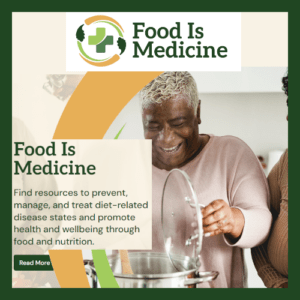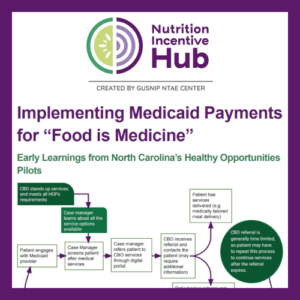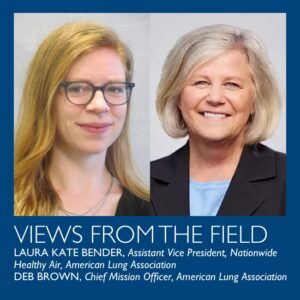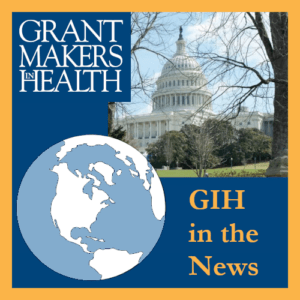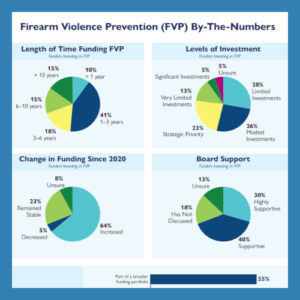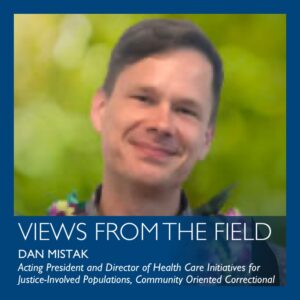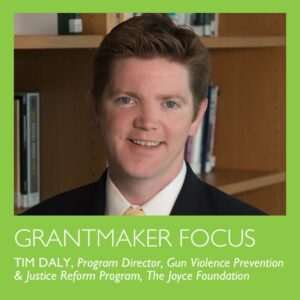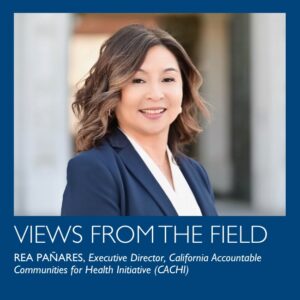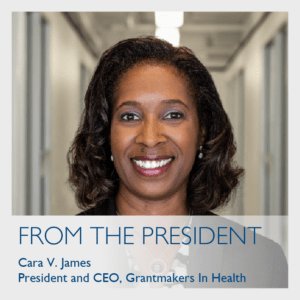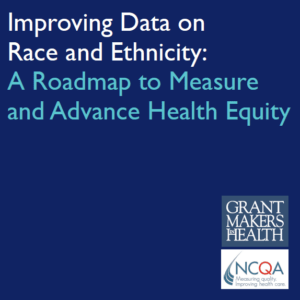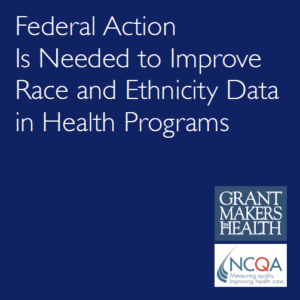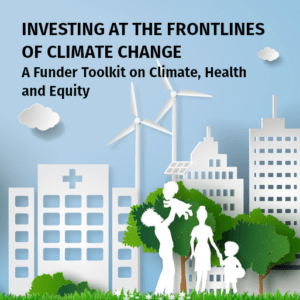Upcoming Events
Past Events
Featured Resources
New America Report Examines Subminimum Wage for Disabled Workers
Under the Fair Labor Standards Act, employers are allowed to pay disabled workers less than the federal minimum wage, which has significant impacts on these workers’ health and well-being. A report from New America examines, state by state, the policies that drive the use or elimination of the subminimum wage, as well as the programs each state provides to more comprehensively support individuals with disabilities as they seek meaningful employment and fair wages.
HHS Launches New Food is Medicine Virtual Toolkit
The Toolkit was developed in response to the National Strategy on Hunger, Nutrition, and Health and to support communities design and implement effective Food is Medicine interventions.
Case Study Examines Early Learnings in Using Medicaid Payments for Food is Medicine
A new resource commissioned by the Fair Food Network examines the early learnings from the Healthy Opportunities Pilots effort in North Carolina to use federal 1115 Medicaid Demonstration Waiver funding to scale and sustain community-based implementation of a combination of produce prescription programs, medically tailored meal programs, and nutrition education.
Explore Health Equity and Social Justice Topics
Recent Items - Climate and Environmental Health
The Health Sector is a Critical Voice in Climate Advocacy
Recent Items - Health Equity
Recent Items - Healthy Eating/Active Living
Recent Items - Housing
Marin Community Foundation: October 2024
Horizon Foundation: September 2024
Recent Items - Justice Reform
Recent Items - Social Determinants of Health
Marin Community Foundation: October 2024
Recent Items - Violence Prevention
The Joyce Foundation
Latest Resources
Remarks on Defending Philanthropy’s Freedom to Give
President and CEO of Grantmakers In Health (GIH), Cara V. James, delivered opening remarks at the 2025 GIH Annual Conference on Health Philanthropy in New Orleans.
From Recovery to Resilience: Investing in Collaborative Infrastructure for Health and Equity
After the 2018 Camp Fire – the most destructive and deadly wildfire in California’s history – the California Accountable Communities for Health Initiative (CACHI) understood that the community needed more than programming to recover. In response, the region’s Accountable Community for Health (ACH) was created – a community-rooted, cross-sector collaborative that invests in local leadership to shift systems, influence policy, and address both long-standing inequities and urgent crises.
Broken Triangle: A Framework for Reparative Philanthropic Relationships
Traditional philanthropic practices have often created imbalanced power dynamics and barriers for Black-led, Black-serving organizations. When the REACH Healthcare Foundation performed a portfolio review in 2018 that revealed this same exclusion within the foundation’s grantmaking investments, REACH committed to reshaping their funding approach, which aims to repair previously neglected —and in some cases, damaged —relationships.
Act Now to Protect Philanthropy, Medicaid, and SNAP
Right now, Congress is finalizing a massive budget reconciliation bill that threatens philanthropy’s freedom to give and endangers the health and well-being of many millions of Americans. We are reaching out today to raise awareness of three critical developments in the ongoing budget reconciliation process and to encourage you to act.
Health and Well-Being Threatened in The First 100 Days
Statement from GIH President and CEO Cara V. James on First 100 Days
Cara V. James Speaks Up on Federal Disruption with Inside Philanthropy
Grantmakers In Health (GIH) President and CEO Cara V. James was interviewed for an Inside Philanthropy article published on April 30, 2025. The piece outlines philanthropy’s reactions to the sweeping cuts to public health infrastructure in the United States, the consequences of these cuts, and the importance of remaining committed to our values.
Reports and Publications
Improving Data on Race and Ethnicity: A Roadmap to Measure and Advance Health Equity
The second of two reports, Improving Data on Race and Ethnicity: A Roadmap to Measure and Advance Health Equity, provides more details about race and ethnicity data collection in federally administered health programs and an expanded list of recommendations for improving the data. The recommendations consider actions for states and the private sector as well as actions for the federal government.
Federal Action Is Needed to Improve Race and Ethnicity Data in Health Programs
Grantmakers In Health, in collaboration with the National Committee for Quality Assurance, interviewed a variety of stakeholders across the country, representing all levels of the health system. Federal Action Is Needed to Improve Race and Ethnicity Data in Health Programs, identifies tangible actions to help improve the completeness, accuracy, and usability of race and ethnicity data.
Funder Toolkit on Climate, Health, and Equity
To help health funders meet this critical moment, GIH partnered with seven philanthropy support organizations to develop a funder toolkit on climate, health, and equity. The toolkit offers an overview of the current funding landscape, hubs of collaboration, and resources available by issue focus, geographical region, and impacted populations.
Strengthen your knowledge, skills, and capacity.
GIH focuses our programming around five areas that are critical to achieving better health for all.
We invite you to explore the resources available on our focus areas pages, browse content in more specific issue areas, and to connect with GIH staff to discuss how we can partner and support your work.


